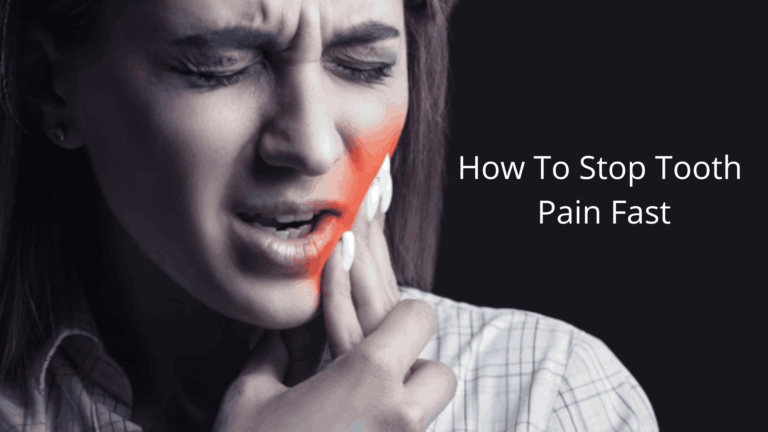When the Usual Painkillers Don’t Cut Your Toothache

Few experiences rival the discomfort and agony of a persistent toothache. Often excruciating and unrelenting, tooth pain can significantly impact your daily life, making even the simplest tasks, such as eating or speaking, a challenge. In such situations, many individuals instinctively reach for over-the-counter painkillers, hoping for quick relief. However, when these medications fail to alleviate the throbbing ache, it can be both frustrating and concerning. Understanding the reasons behind this phenomenon is essential for seeking proper treatment and addressing the underlying cause of your toothache.
The Nature of Toothaches
Toothaches are a symptom of an underlying dental issue, not a condition in themselves. They can arise from various causes, including cavities, abscesses, gum disease, cracked or broken teeth, or even temporomandibular joint disorders (TMJ). Each of these conditions can lead to inflammation, pressure, or nerve irritation within the tooth or surrounding tissues, resulting in varying degrees of pain.
The Limitations of Over-the-Counter Painkillers
Over-the-counter (OTC) painkillers, such as ibuprofen, acetaminophen, or naproxen, can provide temporary relief for mild to moderate tooth pain. However, these medications are designed to address symptoms rather than treat the root cause of the problem. When the underlying dental issue is severe or advanced, the pain may simply be too intense for OTC painkillers to effectively manage.
Tooth Pain and Inflammation
Toothaches often stem from inflammation within the tooth or surrounding structures. This inflammation can result from various factors, such as bacterial infections, trauma, or an immune response to foreign bodies (e.g., a deep cavity or fracture). While OTC anti-inflammatory medications like ibuprofen or naproxen can help reduce swelling and discomfort to some extent, they may not be potent enough to tackle severe or persistent inflammation associated with advanced dental problems.
Nerve Involvement
In many cases, tooth pain is caused by irritation or compression of the nerve within the tooth’s inner chamber (the pulp). This nerve is responsible for transmitting sensations to the brain, and when it becomes inflamed or damaged, it can result in intense, throbbing pain that radiates throughout the jaw and face. Unfortunately, OTC painkillers are often ineffective in addressing nerve-related pain, as they cannot directly target or treat the underlying nerve issue.
Abscesses and Infections
An abscess is a localized collection of pus that can form within the tooth or surrounding gum tissue. Abscesses are typically caused by bacterial infections and can lead to severe, persistent pain that is resistant to OTC painkillers. This is because the infection itself must be treated with antibiotics or surgical intervention to drain the abscess and eliminate the source of the inflammation and pain.
Cracked or Fractured Teeth
When a tooth is cracked or fractured, the sensitive inner layers (dentin and pulp) can become exposed, leading to intense pain and discomfort. OTC painkillers may provide temporary relief, but they cannot repair the fracture or protect the exposed areas from further irritation or infection. In such cases, more comprehensive dental treatment, such as a root canal or crown, may be necessary to address the underlying issue and alleviate the persistent pain.
Underlying Medical Conditions
In some instances, toothaches may be exacerbated or complicated by underlying medical conditions, such as trigeminal neuralgia (a chronic pain condition affecting the trigeminal nerve in the face) or autoimmune disorders like Sjögren’s syndrome (which can cause dry mouth and increased tooth sensitivity). In these cases, OTC painkillers may not be sufficient to manage the pain, and more specialized treatment may be required to address the underlying medical condition.
Seeking Professional Dental Care
When OTC painkillers fail to provide adequate relief for a toothache, it is crucial to seek professional dental care. A dentist can properly diagnose the underlying cause of the pain and recommend appropriate treatment options, which may include:
1. Dental fillings or crowns: For cavities or cracked teeth, a filling or crown can restore the tooth’s structure and protect it from further damage or sensitivity.
2. Root canal treatment: If the pulp (the innermost layer of the tooth) becomes infected or inflamed, a root canal procedure may be necessary to remove the infected tissue and alleviate pain.
3. Tooth extraction: In severe cases where the tooth cannot be saved, extraction may be the only option to eliminate the source of pain.
4. Antibiotics: If an abscess or infection is present, antibiotics may be prescribed to help fight the bacteria and reduce inflammation.
5. Pain management: In cases of severe or persistent pain, dentists may recommend stronger prescription pain medications or other targeted therapies to provide effective relief.
Prevention and Maintenance
While toothaches can be excruciating, many dental issues can be prevented or mitigated through proper oral hygiene and regular dental check-ups. Brushing and flossing regularly, as well as maintaining a balanced diet and avoiding habits like tobacco use, can help keep your teeth and gums healthy. Additionally, routine dental visits allow your dentist to identify and address potential problems before they become more severe and painful.
In conclusion, when OTC painkillers fail to provide relief for a toothache, it is a clear indication that the underlying dental issue requires professional attention. Persistent or severe tooth pain should never be ignored, as it can signify a more serious condition that needs prompt treatment. By seeking proper dental care and addressing the root cause of the pain, you can not only find lasting relief but also protect your overall oral health and prevent further complications.
David Lamelas
David Lamelas is a board–certified Neurologist with a passion for helping his patients live their best lives. He is a top–rated doctor who graduated summa cum laude from the University of Pennsylvania School of Medicine and went on to complete his residency at Harvard Medical School. He has experience in treating a wide range of neurological conditions including stroke, multiple sclerosis, and epilepsy. He also specializes in noninvasive treatments such as Botox injections, nerve blocks, and physical therapy. He is highly respected in his field and has been featured in numerous publications including the New England Journal of Medicine and The David Lamelas has a strong commitment to providing quality care to his patients and works tirelessly to ensure they receive the best treatment possible. He has a kind, compassionate, and knowledgeable bedside manner that has made him a favorite among his patients.
View All By David






